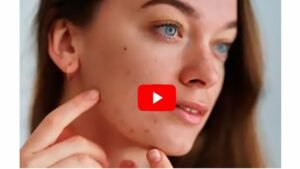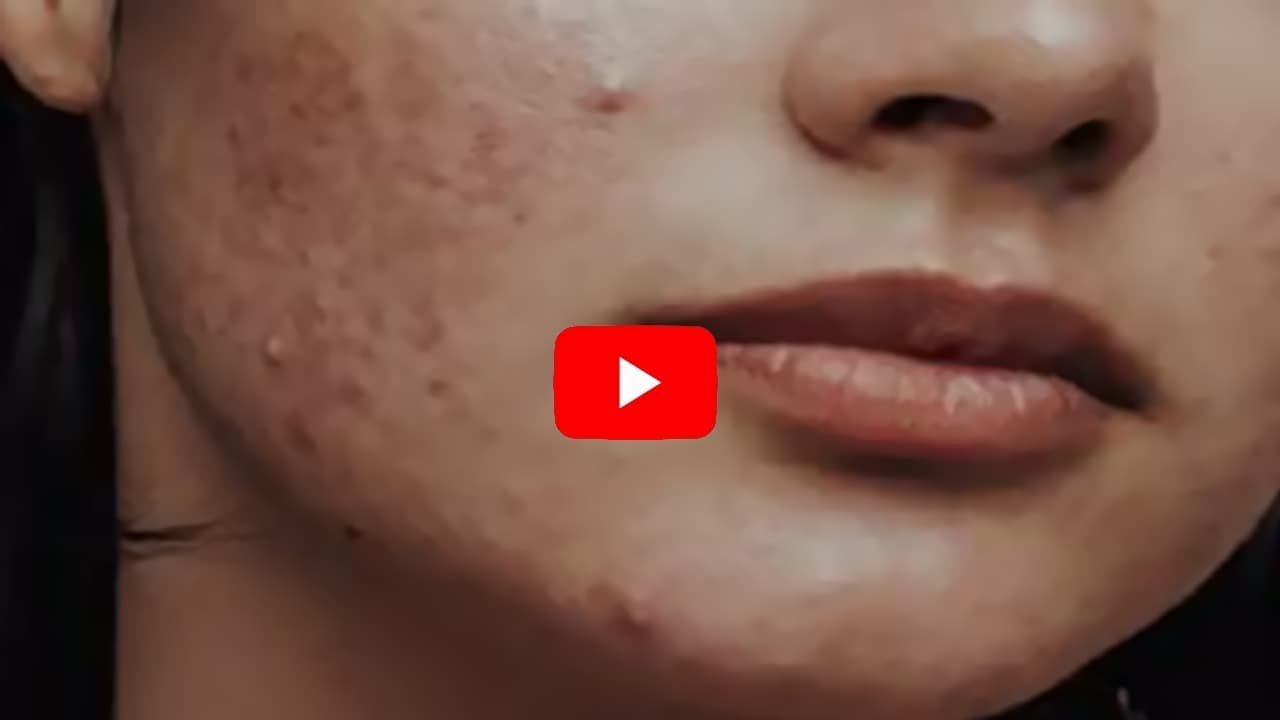Zinc for Acne: A Crucial Mineral in the Fight Against Hormonal Breakouts
Zinc is a vital mineral that plays a significant role in maintaining healthy skin, particularly in managing acne. Its anti-inflammatory properties help reduce the swelling and redness associated with acne lesions. Furthermore, zinc aids in regulating the activity of sebaceous glands, which are responsible for oil production in the skin. Excessive oil production is a common contributor to acne development, making zinc an essential component in acne treatment.
Research indicates that individuals with acne often have lower levels of zinc in their bodies. By supplementing zinc, either through diet or supplements, individuals can potentially reduce the severity and frequency of acne breakouts. Foods rich in zinc, such as oysters, beef, and pumpkin seeds, can be incorporated into the diet, or zinc supplements can be taken under the guidance of a healthcare professional.
Moreover, zinc’s ability to support the immune system further enhances its role in acne management. A robust immune system can better fend off the bacteria that contribute to acne formation. Additionally, zinc’s antioxidant properties help protect skin cells from oxidative stress, which can exacerbate acne.
While zinc is a powerful ally in the battle against acne, it’s important to use it correctly. Over-supplementation can lead to adverse effects, such as nausea or interference with copper absorption. Therefore, consulting a healthcare provider to determine the appropriate dosage is crucial.
Hormonal Balance Supplements: Restoring Equilibrium for Clearer Skin
Hormonal imbalances are a primary cause of acne, particularly in women. Hormonal balance supplements aim to restore equilibrium by regulating the levels of hormones such as estrogen, testosterone, and cortisol. These supplements often contain natural ingredients like chaste tree berry, DIM (Diindolylmethane), and evening primrose oil, which have been shown to support hormonal health.
Chaste tree berry, for instance, is known for its ability to balance hormones and alleviate symptoms associated with premenstrual syndrome (PMS), which can include acne flare-ups. DIM, derived from cruciferous vegetables, helps metabolize estrogen, potentially reducing hormonal acne. Evening primrose oil is rich in gamma-linolenic acid (GLA), an omega-6 fatty acid that supports hormonal balance and skin health.
In addition to these, adaptogens like ashwagandha and maca root are increasingly popular for their potential to balance stress hormones. Stress is a known trigger for acne, and by managing stress levels, these adaptogens may indirectly contribute to clearer skin. They work by modulating the body’s response to stress, thereby reducing cortisol levels and promoting hormonal harmony.
When considering hormonal balance supplements, it’s essential to recognize that results may vary based on individual hormonal profiles and underlying health conditions. A tailored approach, guided by a healthcare professional, can optimize the effectiveness of these supplements in achieving clearer skin.
Probiotics for Acne: Harnessing Gut Health for Clear Skin
The gut-skin axis is a concept that highlights the connection between gut health and skin health. An imbalance in gut flora, often caused by poor diet or antibiotics, can lead to inflammation and skin conditions such as acne. Probiotics, which are beneficial bacteria, help restore balance to the gut microbiome, potentially reducing inflammation and improving skin conditions.
Probiotics can be found in fermented foods like yogurt, kefir, and sauerkraut, or taken as supplements. Studies have shown that probiotics can reduce the severity of acne by modulating the immune response and decreasing inflammation. Incorporating probiotics into the daily routine may not only benefit the skin but also improve overall digestive health.
Furthermore, specific strains of probiotics, such as Lactobacillus and Bifidobacterium, have been studied for their skin benefits. These strains can enhance the skin’s barrier function, reduce oxidative stress, and even improve hydration levels, contributing to a healthier complexion.
While probiotics offer promising benefits, it’s important to choose high-quality products with clinically proven strains. Additionally, maintaining a balanced diet rich in fiber can support probiotic function by providing prebiotics, which are food sources for beneficial gut bacteria.
Clear Skin Supplements: Targeted Nutrients for a Radiant Complexion
Clear skin supplements are formulated with a blend of vitamins, minerals, and herbal extracts specifically chosen for their skin-enhancing properties. These supplements often include ingredients like vitamin A, vitamin E, selenium, and omega-3 fatty acids, which are known to support skin health and reduce acne.
Vitamin A is essential for skin cell turnover, helping to prevent clogged pores and reduce acne. Vitamin E acts as an antioxidant, protecting the skin from damage caused by free radicals. Selenium, a trace mineral, works alongside vitamin E to boost skin health and reduce inflammation. Omega-3 fatty acids, found in fish oil, have anti-inflammatory properties that can help soothe irritated skin and reduce acne.
In addition to these, clear skin supplements may also contain herbal extracts like green tea extract and turmeric. Green tea extract is rich in polyphenols, which have been shown to reduce sebum production and inflammation. Turmeric, with its active compound curcumin, offers potent anti-inflammatory and antioxidant effects, supporting overall skin health.
Selecting the right clear skin supplement involves understanding individual skin needs and potential allergies. Consulting with a dermatologist can help determine the best formulation for achieving a radiant complexion.
✅ Struggling with acne? Discover the 2 natural solutions I personally recommend 👉 Google sites

Vitamin D Acne: The Sunshine Vitamin’s Role in Skin Health
Vitamin D, often referred to as the “sunshine vitamin,” plays a crucial role in maintaining healthy skin. It is known for its ability to modulate the immune system and reduce inflammation, making it beneficial in the management of acne. Low levels of vitamin D have been associated with an increased risk of acne, highlighting the importance of maintaining adequate levels.
Sun exposure is the most natural way to obtain vitamin D, but supplements can also be used, especially in regions with limited sunlight. Vitamin D supplements can help boost the immune system, reduce inflammation, and promote overall skin health, potentially reducing the severity of acne.
Additionally, vitamin D supports the skin’s barrier function, enhancing its ability to retain moisture and protect against environmental aggressors. This can lead to improved skin texture and reduced acne lesions.
While vitamin D is beneficial, it’s important to avoid excessive sun exposure, which can increase the risk of skin damage. Using supplements or fortified foods can provide a safe alternative to maintain healthy vitamin D levels.
Skin Health Vitamins: Essential Nutrients for a Glowing Complexion
Vitamins play a pivotal role in maintaining skin health and preventing acne. In addition to vitamins A, D, and E, other vitamins such as vitamin C and B vitamins are crucial for skin vitality. Vitamin C is essential for collagen production, which helps maintain skin elasticity and firmness. It also acts as an antioxidant, protecting the skin from environmental damage.
B vitamins, including B3 (niacinamide) and B5 (pantothenic acid), are known for their ability to improve skin barrier function and reduce inflammation. Niacinamide, in particular, has been shown to reduce sebum production and improve skin texture, making it a valuable addition to acne treatment regimens.
Moreover, vitamin K and biotin (vitamin B7) are important for maintaining a healthy complexion. Vitamin K is known for its ability to reduce dark circles and improve skin tone, while biotin supports skin, hair, and nail health.
Incorporating a variety of vitamins into the diet or through supplements can help address specific skin concerns and promote overall skin health. A balanced diet rich in fruits, vegetables, and whole grains, combined with targeted supplements, can provide the necessary nutrients for clear and healthy skin.
Hormonal Acne Supplements: Targeted Solutions for Hormone-Induced Breakouts
Hormonal acne supplements are specifically designed to address the root causes of acne related to hormonal fluctuations. These supplements often contain a combination of vitamins, minerals, and herbal extracts that work synergistically to support hormonal balance and reduce acne.
In addition to the previously mentioned chaste tree berry and DIM, other ingredients like saw palmetto and spearmint tea are commonly used in hormonal acne supplements. Saw palmetto is known for its ability to reduce androgen levels, which can decrease oil production and prevent acne. Spearmint tea has been shown to have anti-androgen properties, making it a natural option for reducing hormonal acne.
Furthermore, supplements containing omega-3 fatty acids and flaxseed oil can aid in balancing hormones and reducing inflammation. Omega-3s are known for their anti-inflammatory properties, while flaxseed oil provides lignans that may modulate hormone levels.
For those considering hormonal acne supplements, it’s important to understand the underlying hormonal imbalances and work with a healthcare provider to develop a personalized approach that addresses specific needs and concerns.
Vitamins for Clear Skin: The Building Blocks of a Flawless Complexion
Vitamins are the building blocks of healthy skin, providing the necessary nutrients to maintain a clear and radiant complexion. In addition to the vitamins previously discussed, other vitamins such as vitamin K and biotin (vitamin B7) are essential for skin health. Vitamin K is known for its ability to reduce dark circles and improve skin tone, while biotin supports skin, hair, and nail health.
Incorporating a variety of vitamins into the diet or through supplements can help address specific skin concerns and promote overall skin health. A balanced diet rich in fruits, vegetables, and whole grains, combined with targeted supplements, can provide the necessary nutrients for clear and healthy skin.
In conclusion, supplements can play a significant role in managing hormonal acne and promoting overall skin health. By incorporating a combination of zinc, hormonal balance supplements, probiotics, and essential vitamins and minerals, individuals can support their skin from the inside out. It is important to consult with a healthcare professional before starting any new supplement regimen to ensure it is appropriate for individual needs and health conditions.
Ultimately, achieving clear skin involves a holistic approach that includes a healthy diet, lifestyle changes, and the right supplements. By understanding the unique needs of your skin and working with professionals, you can create a personalized plan that helps you achieve and maintain a radiant complexion.
✅ Struggling with acne? Discover the 2 natural solutions I personally recommend 👉 Google sites






I don’t ordinarily comment but I gotta state appreciate it for the post on this special one : D.
I love the efforts you have put in this, appreciate it for all the great articles.
Youre so cool! I dont suppose Ive read something like this before. So good to find someone with some authentic ideas on this subject. realy thanks for starting this up. this website is something that’s wanted on the web, somebody with just a little originality. helpful job for bringing something new to the internet!
Nice blog.
thx